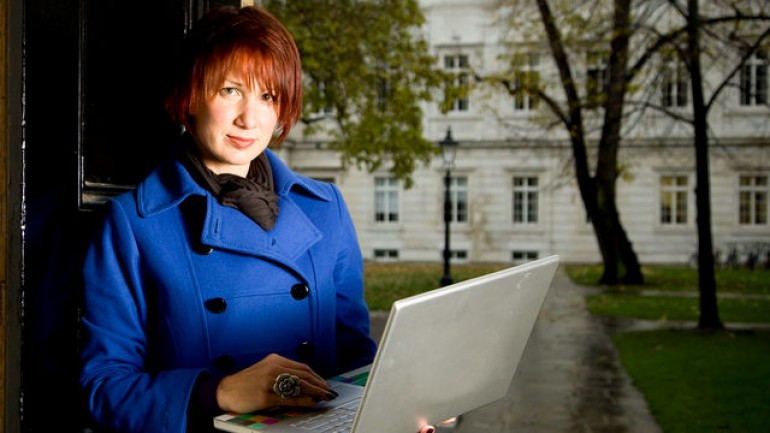Twenty years on from the invention of the World Wide Web, Dr Aleks Krotoski looks at how it is reshaping almost every aspect of our lives.
Joined by some of the web’s biggest names – including the founders of Facebook, Twitter, Amazon, Apple and Microsoft, and the web’s inventor – she explores how far the web has lived up to its early promise.
The founding father of the Web, Tim Berners-Lee, believed his invention would remain an open frontier that nobody could own, and that it would take power from the few and give it to the many.
Now, in a provocative, strongly authored argument, presenter Aleks Krotoski will re-assess utopian claims like these, made over many years by the digital revolution’s key innovators – and test them against the hard realities of the emerging Web today, exploring how the possibilities of the pure technology have been constrained, even distorted by the limitations of human nature.
The Great Levelling? In the first in this four-part series, Aleks charts the extraordinary rise of blogs, Wikipedia and YouTube, and traces an ongoing clash between the freedom the technology offers us, and our innate human desire to control and profit.
Enemy of the State? With contributions from Al Gore, Martha Lane Fox, Stephen Fry and Bill Gates, Aleks explores how interactive, unmediated sites like Twitter and YouTube have encouraged direct action and politicised young people in unprecedented numbers.
The Cost of Free. She tells the inside story of the gold rush years of the dotcom bubble and reveals how retailers such as Amazon learned the lessons. She also charts how, out of the ashes, Google forged the business model that has come to dominate today’s web, offering a plethora of highly attractive, overtly free web services, including search, maps and video, that are in fact funded through a sophisticated and highly lucrative advertising system which trades on what we users look for.
Homo Interneticus? Joined by Facebook founder Mark Zuckerberg, Bill Gates, Al Gore and the neuroscientist Susan Greenfield, Aleks examines the popularity of social networks such as Facebook and asks how they are changing our relationships. And, in a ground-breaking test at University College London, Aleks investigates how the Web may be distracting and overloading our brains.




“Tv sets are commercially available since the late 1930”
No.
Television broadcasts began in London in 1929, with the BBC startign its own service the following year.
What a web we woven.Just think how young it is and how old are Tv sets are commercially available since the late 1930(80 & 3/quarter years young.in the same time period of time the computer will probably be just a hologram that is activate by movement of the human kind .The main brain of it all will probably look like AR11A computer in Eagle eye movie. i only wish we would had early exposed to computers all we had were type writers still i think its great and i try not to get to consumed by it .